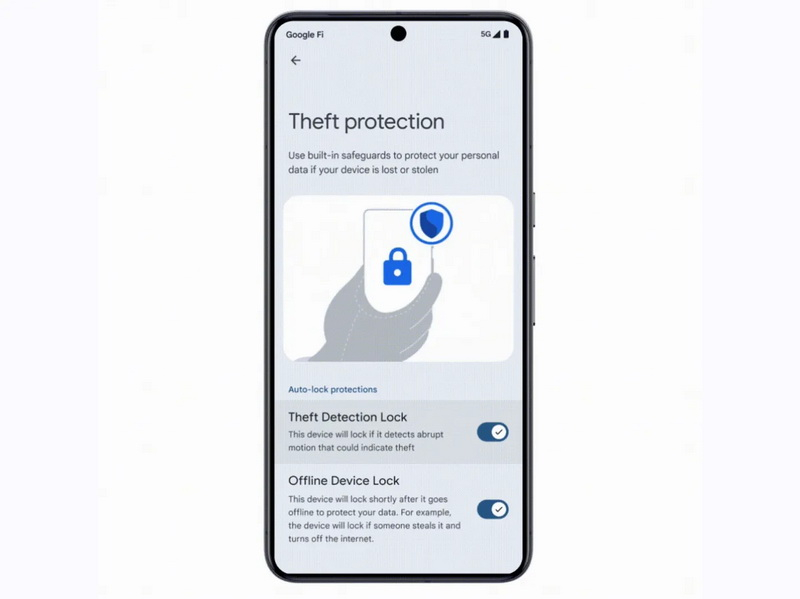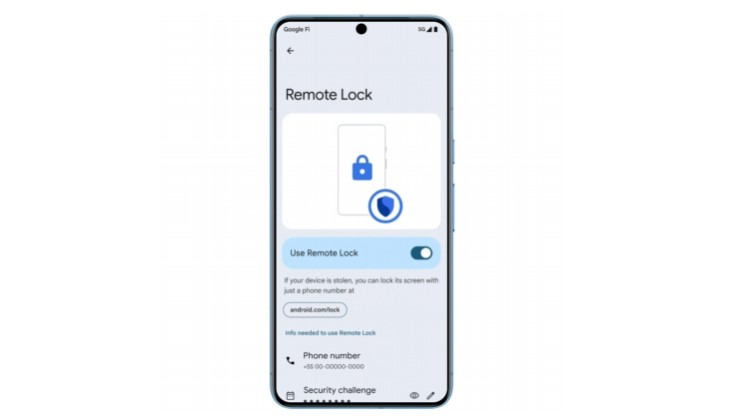
New feature in Android 15 will automatically lock your phone if it's stolen
Google has released the second beta version of the Android 15 operating system to be introduced this fall, which includes a number of new security features. Thanks to one of them, for example, the screen of the smartphone is immediately locked when the smartphone is stolen from the user or taken from his hand.
Some of the new security features in Android 15 will eventually roll out to older versions of Android as well, making them available to many more users.
A new feature called Theft Detection recognizes unusual and sudden movements of the mobile device, which can indicate that someone is snatching the phone from the user's hand or stealing the device from the table. To prevent a potential attacker from gaining access to the device's data, the phone's screen is automatically locked. The system also monitors if the device is being hacked remotely and if so, automatically disconnects it from the network.

Google is also offering a new way to remotely lock a phone's screen if it falls into the wrong hands. To do this, you just need to visit Android.com/lock, enter your phone number and answer the security question. After that the device will be locked. These features will be available with a future update to Google Play Services for smartphones running Android 10 and later.

Android 15 also introduces a new security feature called Private Space. It allows apps and data to be placed in a separate, hidden area of the smartphone that can be locked with a PIN code. Google has also added protection against forced device restarts and factory resets. In this case, the system will ask to enter the data of the owner of the smartphone (name, password, etc.) during the next setup.
Android Play Protect has also received an update. It checks how apps use the permissions they request from the device to protect the device from phishing and other fraud. Information about potentially malicious apps is sent to Google for further verification.
- Related News
- Ask Photos: Google will launch new AI assistant for photo searches
- Google has released the stable version of Android 15։ When will it be available to users and what new features will it offer?
- Google, Amazon, Facebook are secretly listening to users to show targeted ads: CMG
- Owners of Google Pixel 9 Pro XL smartphones complain about screen problems
- Google Pixel 9 Pro XL named the second best camera phone in the world: Which smartphone takes the top spot?
- Gmail has a new feature that can’t be turned off
- Most read
month
week
day
- 10 most powerful, yet affordable smartphones of August 985
- Nvidia stock price fаll by 9% in one day: Investor's Brief 05.09.24 951
- Are we alone in the Universe? New study suggests intelligent aliens may be rare 846
- When and where will Tesla present its new product Robotaxi? 802
- After iPhone 16 presentation, Apple will withdraw at least 10 devices from sale: What are those devices? 788
- Does dark matter exist? Scientists get closer to detecting the most mysterious substance in the Universe 780
- Google, Amazon, Facebook are secretly listening to users to show targeted ads: CMG 753
- Asteroid explodes in the sky of Philippines (video) 752
- Honor introduces Magic V3 foldable smartphone, which has the thinnest body in this segment 701
- Antutu unveils best Apple device ranking: latest iPhones fail to make the list 695
- Archive
